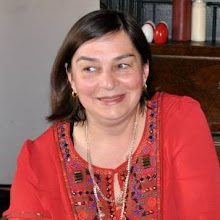The fourth and final episode of Howards End came full circle with the Schlegel sisters and the
Wilcoxes as obnoxious as they were for me in the first episode. In the third
episode it seemed as if Helen had developed some awareness of Leonard Bast as
an equal rather than a charity case and a social experiment but this was not to
endure.
It was also confusing in some parts in a similar way to
episode one, especially regarding what happened between Helen and Leonard, so
it seemed as if the BBC were relying on people having read the book before
watching the series. Did they have a single encounter or had it continued? I
couldn’t quite tell. Either way, she decided she ‘never wants to see him again’
because he would ‘keep worshipping her’.
Being a single mother at a time when it would ruin her
reputation is preferable to her than being with Leonard, which can be seen as
brave, but the way she has continued to treat him abusively by encouraging him
to get close and then distancing him because she ultimately views him as
inferior shows that she’s the same Helen who wanted to patronise and help him.
Her offer of a cheque for £5,000, which he keeps returning, compounds that
insult.
The writer, Kenneth Lonergan, did well to keep us
wondering why she decided to go to Germany and avoid her family. I thought it
was to avoid Margaret once Helen knew about Henry Wilcox’s affair, as it would
be hard to lie to her sister after a lifetime of honesty. Helen doesn’t know
that Henry has told Margaret and she has forgiven him. The obvious reason – to hide
a pregnancy – doesn’t occur to us.
When it comes to Henry being as accepting about a heavily
pregnant and unmarried Helen the hypocrisy and double standards of the time for
men and women become clear. He doesn’t even want Helen to spend the night in
Howards End, where all the Schlegel furniture is being stored. As the
housekeeper sets out the furniture and books, Howards End continues to play a
main role in the story, establishing itself even more as the permanent home the
sisters crave.
The switch from our focus on Henry’s affair to Helen’s
unmarried sexual encounter is effective as we see very different reactions to
the people involved. Helen is expected to marry, the man is considered a
seducer and the active partner, with the woman as a victim but an embarrassment
to be shuffled out of the way. If the man can’t marry her he should be
thrashed.
Leonard would no doubt marry Helen and is looking for
her, finally travelling to Howards End after getting some news from her brother
Tibby. It’s clear that he will never be accepted by the Schlegels or the
Wilcoxes as a possible husband because of his class, although Tibby has begun
to admire him for returning such large cheques and not giving in to the
temptation of money despite his poverty.
I haven’t read the novel, but the damage done to Leonard
by the Schlegel sisters’ books and bookshelves makes me think EM Forster
intended us to see him as the victim of their culture and philanthropy as much
as he’s a victim of the class system and wealthy materialists like the
Wilcoxes. The Schlegels want the same things as the Wilcoxes in the end – their
comfortable house and the company of people from their own class.
At the end we see Helen and Margaret blissfully happy and
Leonard is completely forgotten as they live their idyllic life. Helen tells Margaret
that she now likes Henry, and Margaret suggests that it would be impossible for
anyone to dislike him. Henry has been broken by the legal punishment of his
son, rather than the horrific act he has committed, and the fact that he can’t
manage to get him out of trouble by pulling all the strings he can. Even when
Margaret hears that her husband hid from her the fact that she inherited
Howards End from his late wife she is unperturbed. He asks if he did wrong and
she replies that nobody has done anything wrong.
They have all done wrong and the victim at every stage
has been Leonard Bast along with Jackie. Their lives would have been much
better if Leonard had never met the Schlegels but the damage done to them is
wiped aside and forgotten as Helen, Margaret and Henry walk out into the sunny
meadow with Helen’s child. They deserve each other and Leonard deserved much
better. He will stay in my mind and I must read the novel now to see if it
comes across in the same way or if the TV series made significant changes to
the plot and themes.
It’s not easy to get a strong reaction from viewers and
Howards End managed to annoy me many times and to create some difficult viewing
in the worst moments for Leonard, all done in casual ignorance by the
philanthropic Helen, her family and their friends. If you haven’t seen it, I
highly recommend catching it on BBC iPlayer.









